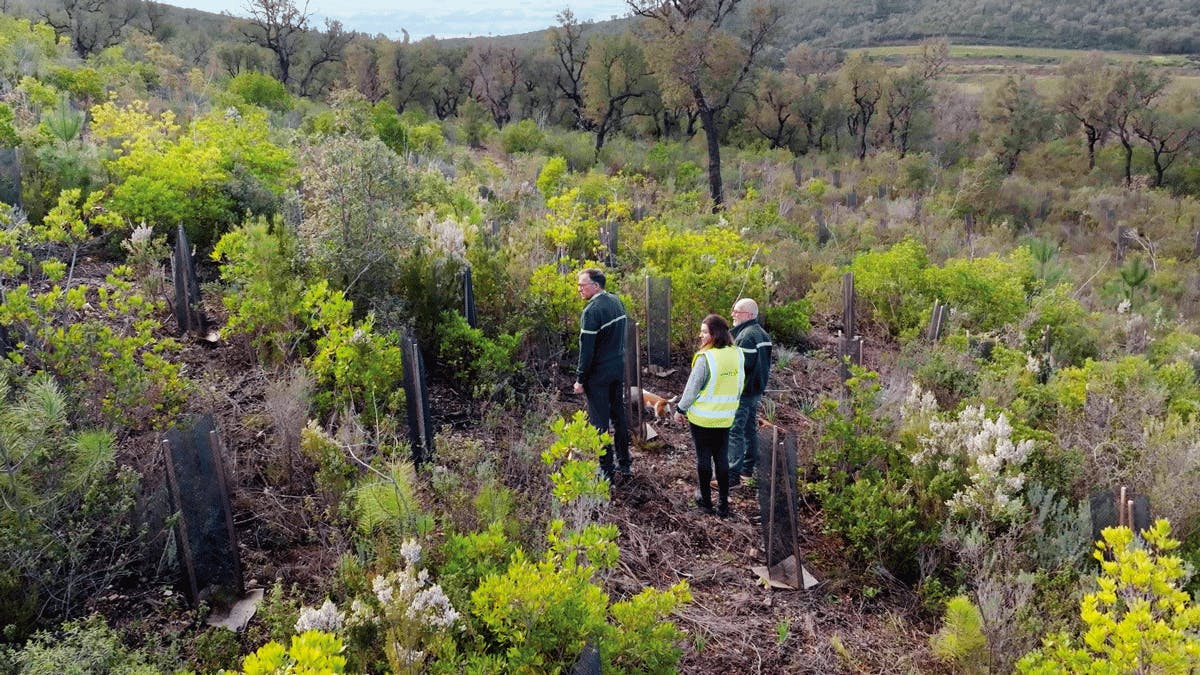
Reforestation project in Lavandou, near Toulon airport; this low carbon label project will enable the airport to capture its residual emissions.
Biofuels, green hydrogen and electricity: the energies of the future
The issue of fuel is crucial to the decarbonisation of air travel. By applying sliding scale carbon fees, VINCI Concessions encourages airlines to opt for alternatives such as biofuels. Made from used cooking oil, sustainable aviation fuels (SAFs) bring CO2 emissions down by around 80% through their entire life cycle when compared to fossil kerosene. VINCI Airports is pioneering in the distribution of SAFs in France, with availability at a number of its airports Clermont-Ferrand, Grenoble, Saint-Nazaire and Toulon, as well as London in the UK. In the longer term, VINCI Concessions is also preparing for the arrival of the first hydrogen-powered aircraft in the 2030s. In late 2021, VINCI Group joined forces with Air Liquide and TotalEnergies to create the world’s largest investment fund for the development of carbon-free hydrogen infrastructure. The fund aims to generate around €15 billion of investment in the sector by 2028. At VINCI Airports, this approach is already taking shape in operations. Through a partnership with Airbus, an initial hydrogen gas distribution station will be installed at Lyon-Saint Exupéry airport in 2024 as part of a pilot project, powering local fleets such as airport buses and lorries before the rollout in 2026 of a liquid hydrogen production and distribution station to supply future aircraft. Lastly, by installing electric charging points within its network, VINCI Concessions is also helping to develop low-carbon mobility on the ground both for tourism vehicles and runway vehicles for use at its airports.
Long-term action through carbon sequestration
To reach its net zero emission targets in 2030 in the European Union and London Gatwick and by 2050 globally VINCI Concessions is also preparing to capture residual emissions by deploying impactful local solutions that will generate positive externalities for regions. In 2023, VINCI Airports and the Rhône Chamber of Agriculture launched their first local agricultural project, which has a low carbon label for large-scale crop cultivation. It will enable the airport to offset its residual emissions and the region to encourage more sustainable farming that releases less CO2. VINCI Concessions also signed a 30 year partnership in 2023 with Neosylva, a Nantes based start-up that helps forest owners secure the lasting value of their asset; through low-carbon reforestation, the partnership will enable VINCI Concessions to anticipate the carbon sequestration requirements of French airports. Lastly, VINCI Concessions is also exploring the option of forest carbon sinks near its airports such as in Lyon, Toulon Hyères, Portugal and Costa Rica. The company is sharing the benefits with its airline partners, as in Nantes, enabling them to meet their obligations under the French Climate Law.
